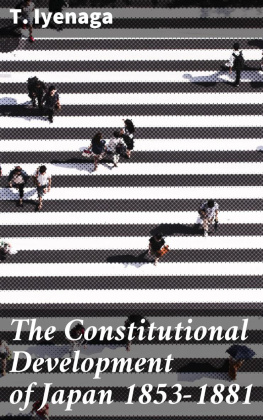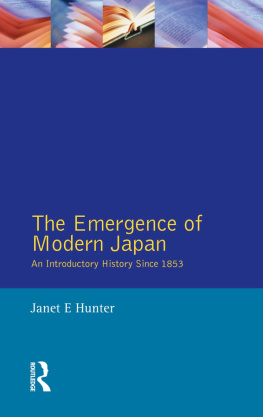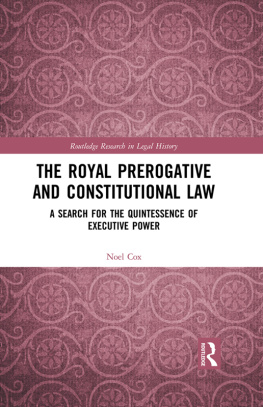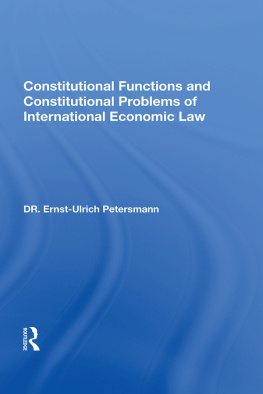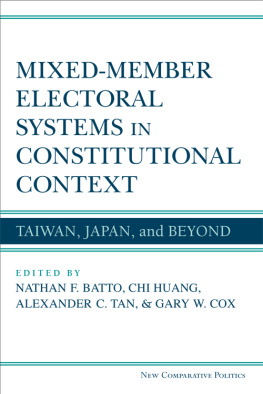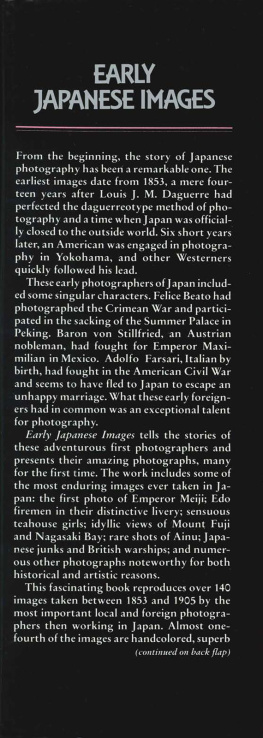INTRODUCTORY.
Table of Contents
The power which destroyed Japanese feudalism and changed in that country an absolute into a constitutional monarchy was a resultant of manifold forces. The most apparent of these forces is the foreign influence. Forces less visible but more potent, tending in this direction, are those influences resulting from the growth of commerce and trade, from the diffusion of western science and knowledge among the people, and from the changes in social habits and religious beliefs. The truth of the solidarity of the varied interests of a social organism is nowhere so well exemplified as in the history of modern Japan. Her remarkable political development would have been impossible had there been no corresponding social, educational, religious, economic and industrial changes. In order to trace the constitutional development of New Japan, it is therefore necessary:
1. To ascertain the political condition of the country at and after the advent of foreigners in 1853.
2. To describe the form of government of the Restoration.
3. To examine the state of commerce, industry, education and social life of Japan at each stage of her political transformations.
4. To recount the constitutional changes from the Restoration to the Promulgation of the New Constitution.
As a novice in travel marks the broad outlines, the general features and more important products of the country he visits for the first time, so I shall dwell upon the historic landmarks of Japanese constitutional development. This development no writer, native or foreign, has yet attempted to trace. I shall withstand as much as possible the temptation to refer to the multitude of events which are more or less associated with the constitutional movement. I shall endeavor to ascertain from the edicts, decrees, and proclamations of the Emperor, from the orders and manifestos of the Shogun, from the native authors and journals, from the memorials and correspondence of prominent men, both native and foreign, the trend of our constitutional development. I shall also endeavor to note the leading ideas and principles which, after manifesting themselves in various forms, have at last crystallized into the New Constitution of Japan.
CHAPTER I.
Table of Contents
BEGINNING OF THE CONSTITUTIONAL MOVEMENT.
Table of Contents
The constitutional movement of Japan began in a spontaneous agitation of the whole body politic when the nation was irritated by the sudden contact with foreigners. The sense of national weakness added a force to this agitation. Had not the foreigners come, the Restoration might have been effected, feudalism might have been abolished, but the new Japanese constitution would hardly have seen the day. Had the government of Japan at the time of the advent of foreigners been in the strong hand of a Taiko or an Iyeyasu, the rulers might have been greatly exercised by the extraordinary event, but public opinion for reform would hardly have been called forth, and the birth of constitutional liberty would long have been delayed. As the vices of King John and the indifference and ignorance of the first two Georges of England begat the strength and hope of the English Parliament, so the public opinion of Japan sprouted out of the ruins of the Shogunate rgime. We must therefore seek for the beginning of the Constitutional Movement of Japan in the peculiar circumstances in which she found herself between 1853 and 1868.
The advent of Commodore Perry in 1853 was to Japan like the intrusion of a foreign queen into a beehive. The country was stirred to its depth. Let us note what a native chronicler says about the condition of Japan at the arrival of Perry:
"It was in the summer of 1853 that an individual named Perry, who called himself the envoy of the United States of America, suddenly arrived at Uraga, in the Province of Sagami, with four ships of war, declaring that he brought a letter from his country to Japan and that he wished to deliver it to the sovereign. The governor of the place, Toda Idzu No Kami, much alarmed by this extraordinary event, hastened to the spot to inform himself of its meaning. The envoy stated, in reply to questions, that he desired to see a chief minister in order to explain the object of his visit and to hand over to him the letter with which he was charged. The governor then despatched a messenger on horseback with all haste to carry this information to the castle of Yedo, where a great scene of confusion ensued on his arrival. Fresh messengers followed, and the Shogun Iyeyoshi, on receiving them, was exceedingly troubled, and summoned all the officials
Thus was the renowned commander kept away for awhile. He went, however, of his own accord. Perry was an astute diplomatist. He knew that time was needed for the impressions which he and his magnificent fleet had made upon the country to produce their natural effect.
The news of Perry's visit and demands spread far and wide with remarkable rapidity. The government and the people were deeply stirred. Soon the song of the "red-bearded barbarians" and of the black ships was in everybody's mouth. The question "What shall Japan do when the barbarians come next spring?" became the absorbing theme of the day.
There was now but one of two policies which Japan could pursue, either to shut up the country or to admit the foreigners' demand. There was no middle course left. The American envoy would no longer listen to the dilatory policy with which the Japanese had just bought a few months' respite from anxiety.
The majority of the ruling class, the Samurai, were in favor of the exclusion policy. So was the court of Kioto. But the views of the court of Yedo were different. The court of Yedo had many men of intelligence, common sense and experiencemen who had seen the American envoy and his squadron, equipped with all the contrivances for killing men and devastating the country. These men knew too well that resistance to the foreigners was futile and perilous.
Thus was the country early divided into two clearly defined parties, the Jo-i party and the Kai-Koku party.
Meanwhile, the autumn and winter of 1853 passed. The spring of 1854 soon came, and with it the intractable "barbarians." Let us hear the author of Genje Yume Monogatari relate the return of Perry and the great discussion that ensued at the court of Yedo:
"Early in 1854 Commodore Perry returned, and the question of acceding to his demands was again hotly debated. The old prince of Mito was opposed to it, and contended that the admission of foreigners into Japan would ruin it. 'At first,' said he, 'they will give us philosophical instruments, machinery and other curiosities; will take ignorant people in, and, trade being their chief object, they will manage bit by bit to impoverish the country, after which they will treat us just as they likeperhaps behave with the greatest rudeness and insult us, and end by swallowing up Japan. If we do not drive them away now we shall never have another opportunity. If we now resort to a dilatory method of proceeding we shall regret it afterwards when it will be of no use.'
"The officials (of the Shogun), however, argued otherwise and said: 'If we try to drive them away they will immediately commence hostilities, and then we shall be obliged to fight. If we once get into a dispute we shall have an enemy to fight who will not be easily disposed of. He does not care how long a time he must spend over it, but he will come with myriads of men-of-war and surround our shores completely; he will capture our junks and blockade our ports, and deprive us of all hope of protecting our coasts. However large a number of ships we might destroy, he is so accustomed to that sort of thing that he would not care in the least. Even supposing that our troops were animated by patriotic zeal in the commencement of the war, after they had been fighting for several years their patriotic zeal would naturally become relaxed, the soldiers would become fatigued, and for this we should have to thank ourselves. Soldiers who have distinguished themselves are rewarded by grants of land, or else you attack and seize the enemy's territory and that becomes your own property; so every man is encouraged to fight his best. But in a war with foreign countries a man may undergo hardships for years, may fight as if his life were worth nothing, and, as all the land in this country already has owners, there will be none to be given away as rewards; so we shall have to give rewards in words or money. In time the country would be put to an immense expense and the people be plunged into misery. Rather than allow this, as we are not the equals of foreigners in the mechanical arts, let us have intercourse with foreign countries, learn their drill and tactics, and when we have made the nation as united as one family, we shall be able to go abroad and give lands in foreign countries to those who have distinguished themselves in battle. The soldiers will vie with one another in displaying their intrepidity, and it will not be too late then to declare war. Now we shall have to defend ourselves against these foreign enemies, skilled in the use of mechanical appliances, with our soldiers whose military skill has considerably diminished during a long peace of three hundred years, and we certainly could not feel sure of victory, especially in a naval war.'"


